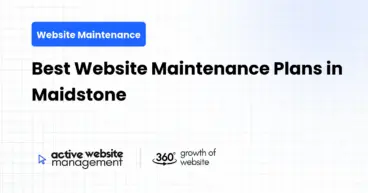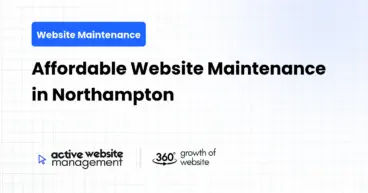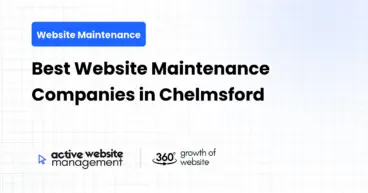January 22, 2025
16 min read
Your real estate website isn’t just a digital brochure; it’s the engine driving your leads, the face of your brand, and often, the first impression potential clients have of you. Ignoring its upkeep is like letting a prime property fall into disrepair. Neglecting your “property site care” can lead to frustrated users, missed opportunities, and a significant hit to your bottom line. Let’s explore six critical “real estate website upkeep” tips to keep your online presence thriving.
1. Regular Content Updates: Keeping Your Real Estate Website Fresh and Engaging
Why Fresh Content Matters for Your Realtor Website
Imagine walking into a model home that looks exactly the same as it did five years ago. The furniture is outdated, the paint is peeling, and nothing feels fresh or inspiring. This is how a neglected website feels to a potential client. Search engines also favor fresh, relevant content. They are constantly crawling the web, looking for the most current and useful information.
Outdated information not only affects SEO but can also damage your credibility. If a potential client sees listings that are no longer available or blog posts referencing old market data, they’ll quickly question your competence and professionalism. Regular content updates, specifically tailored to your local market, show you’re an active, informed realtor. This directly impacts how you are perceived, building trust and encouraging engagement.
What Kind of Content Should You Update?
- Property Listings: This is a no-brainer. Ensure all listings are up-to-date, with accurate descriptions, pricing, and high-quality photos/videos. Remove sold or unavailable properties promptly.
- Blog Posts: Regularly share market insights, neighborhood guides, staging tips, or client success stories. Use your blog to answer frequently asked questions and establish yourself as a real estate expert.
- Testimonials & Reviews: Showcase positive client experiences. Regularly solicit feedback and update your site with new testimonials.
- About Us/Team Page: Keep your information current with updated headshots and details about new team members.
- Local Area Information: Highlight new developments, local events, and community resources to demonstrate your knowledge of your area.
- Legal Information: Ensure your site is legally compliant, especially with regards to accessibility, privacy policies, and local real estate regulations.
Don’t Just Maintain Your Website—
Grow It using Active Website Management! Don't Wait for Growth—Accelerate It with Active Website Management
How Often Should You Update?
- Listings: Daily, if possible. This requires constant monitoring and may require automation depending on your MLS access.
- Blog: At least 1-2 times per month. Consistency is crucial for SEO and audience engagement.
- Testimonials: As you receive them. It is important to keep them fresh.
- About Us/Team: Quarterly or as needed, when new team members join or there are other updates
- Local Area & Legal: Review and update on a quarterly basis, or when new legislation is passed.
Actionable Steps for Content Updates
- Create a Content Calendar: Plan your blog posts and content updates in advance.
- Use SEO-Friendly Keywords: Research relevant keywords that buyers are using when searching for real estate in your area and implement them in all your content.
- Automate MLS updates: Integrate your site with your MLS to ensure listing data is always up-to-date.
- Set Reminders: Use calendar reminders to keep track of scheduled content reviews.
- Monitor Performance: Analyze website analytics to see what content is performing well and what needs improvement.
Why Website Speed is Critical for Realtors
Slow websites are a death knell for online businesses, and real estate is no exception. In today’s fast-paced digital world, people expect websites to load instantly. If your “property site care” doesn’t include optimizing for speed, you risk losing potential clients before they even see your listings. Google has openly stated that page load speed is a ranking factor, so slow websites will struggle to get visibility on search engines.
A slow website causes frustration, leading potential clients to abandon your site and visit a competitor. Moreover, slow loading times can impact your bounce rate, where users leave your site after only viewing one page. This directly impacts your SEO rankings and can hurt your chances of being found online. It’s essential to view your website as a tool to serve your clients, and a slow website serves no one.
- Large Images: Unoptimized images are a common culprit. Large files slow down page load times.
- Poor Hosting: Cheap web hosting may lack the resources needed for optimal performance.
- Excessive Plugins: Too many plugins can bog down your site, causing lag.
- Unoptimized Code: Inefficient code can slow down your site significantly.
- Lack of Caching: Caching stores frequently accessed data, allowing your website to load much faster, this is a critical part of “realtor website maintenance”
- Slow Server Response Times: Slow server response times can drag down the overall performance of your website.
- Optimize Images: Compress image files without sacrificing quality. Use appropriate file formats (JPEG for photos, PNG for graphics) and size images to fit their intended display area.
- Choose a Quality Hosting Provider: Invest in a hosting plan that offers sufficient resources and speed. Consider specialized hosting for real estate websites.
- Limit and Optimize Plugins: Use only necessary plugins and keep them updated. Deactivate and remove unused plugins.
- Minify HTML, CSS, and JavaScript: Remove unnecessary characters from your website’s code.
- Implement Caching: Enable browser and server-side caching.
- Utilize a Content Delivery Network (CDN): CDNs store website content on multiple servers worldwide, so it can load faster for users regardless of their location.
- Use Lazy Loading: Load images only when they’re visible in the user’s viewport, significantly speeding up initial page load times.
- Monitor your speed: Use tools like Google PageSpeed Insights, GTmetrix or Pingdom to identify speed bottlenecks, these tools can give you very specific actionable steps to make your website load faster.
- Google PageSpeed Insights: A free tool from Google that analyzes your website’s performance and provides recommendations.
- GTmetrix: Another popular tool for website speed testing, offering detailed analysis and recommendations.
- Pingdom Website Speed Test: Provides a comprehensive performance analysis and load times.
- WebPageTest: An advanced open-source tool that offers granular testing data.
3. Mobile Responsiveness: Ensuring a Seamless Experience on All Devices
Why Mobile-First is Essential for Real Estate Businesses
Most people today use their smartphones to browse the web, and this trend holds true for real estate searches too. A website that isn’t optimized for mobile devices will provide a frustrating experience and will cost you potential clients. If your “realtor website maintenance” doesn’t include a mobile-first strategy, you’re likely losing out on a significant portion of your target market.
A mobile-responsive website adapts seamlessly to any device, whether it’s a smartphone, tablet, or desktop computer. This not only improves user experience but also significantly impacts your SEO. Google prioritizes mobile-friendly sites, and it will penalize non-responsive websites. A responsive website makes it easy for users to view your property listings, contact you, and browse your content on the go.
Don't Wait for Growth—Accelerate It with
Active Website Management Don't Wait for Growth—Accelerate It with Active Website Management
Key Elements of a Mobile-Responsive Website
- Flexible Layout: The website layout should adapt to different screen sizes without requiring users to zoom or scroll horizontally.
- Touch-Friendly Navigation: Buttons and links should be large enough and spaced properly for easy tapping on mobile screens.
- Optimized Images and Media: Images and videos should be optimized for mobile devices, ensuring quick loading times.
- Simplified Content: Mobile users are often on the go, so content needs to be clear, concise, and easy to consume.
- Fast Load Times: Mobile networks can sometimes be slower, so mobile websites must load quickly to avoid user frustration.
How to Make Your Real Estate Website Mobile-Responsive
- Use a Responsive Theme/Template: Choose a website theme or template that is designed to be responsive and adapt to various screen sizes.
- Test on Multiple Devices: Regularly test your website on different smartphones, tablets, and screen resolutions.
- Implement a Mobile-First Approach: When creating new content or making design changes, think about how it will appear on a mobile device first.
- Optimize Images and Media: Use optimized images and videos for mobile viewing to ensure your pages load quickly.
- Use Mobile-Friendly Navigation: Simplify your navigation menu and make it easy for users to access key pages.
- Use large font sizes and button sizes: On mobile devices smaller screen make elements hard to click and read, having larger fonts and button size makes your website more user friendly.
- Check with Google Mobile-Friendly Test: Use Google’s mobile-friendly test to ensure your website meets their criteria.
- Google Mobile-Friendly Test: A free tool from Google to test if a page is mobile-friendly.
- Browser Developer Tools: Most modern browsers offer built-in developer tools that allow you to simulate different screen sizes and devices.
- Mobile Emulator Tools: There are multiple free mobile emulator websites that will let you test your website across all kinds of devices.
- Test on Multiple Devices: The most reliable way to make sure your website looks good on mobile devices is to check it on several devices yourself.
4. Security Audits & Updates: Protecting Your Website and Client Data
Why Website Security is Crucial in the Real Estate Industry
Real estate businesses handle sensitive client information, including personal details, financial data, and property information. A security breach can have catastrophic consequences, damaging your reputation, leading to legal issues, and losing the trust of your clients. Therefore, thorough website security is a critical component of your “real estate website upkeep”.
Failing to maintain your website’s security can leave you vulnerable to cyberattacks, malware, and data breaches. A compromised website can be used to spread viruses, phish for client information, or steal valuable data. Additionally, security vulnerabilities can impact your search rankings and cause your website to be flagged as unsafe, potentially deterring new visitors.
Common Security Threats to Real Estate Websites
- Malware: Malicious software that can infect your website and compromise its security.
- Hacking: Unauthorized access to your website, potentially leading to data theft or manipulation.
- SQL Injection: A type of attack that exploits vulnerabilities in your website’s database.
- Cross-Site Scripting (XSS): A type of attack that injects malicious scripts into your website to steal data.
- Phishing: Attempting to acquire sensitive information by impersonating a trustworthy entity.
- DDoS Attacks: Overwhelming your website with traffic, making it unavailable to users.
- Outdated Software: Vulnerable software on your website can be exploited by hackers.
Best Practices for Securing Your Real Estate Website
- Use Strong Passwords: Use strong, unique passwords for all your accounts and enable two-factor authentication.
- Install an SSL Certificate: An SSL certificate encrypts data transmitted between your website and your users, protecting sensitive information and boosting SEO.
- Keep Software Updated: Regularly update your CMS (like WordPress), plugins, and themes to patch security vulnerabilities.
- Regularly Backup Your Website: Create regular backups of your website, so you can quickly restore it if it gets hacked.
- Implement Website Security Monitoring: Use security plugins or services to monitor your website for suspicious activity.
- Use a Web Application Firewall (WAF): A WAF can help protect your website from various online threats.
- Scan your website regularly: use a website security scanner tool to check for vulnerabilities, even if you are not doing any specific changes, it’s still a good idea to have it scanned regularly.
- Sucuri: A popular security platform that provides website scanning, malware removal, and firewall protection.
- Wordfence: A robust WordPress security plugin that provides firewall protection, malware scanning, and login security.
- Cloudflare: Offers a free CDN with a built-in security firewall.
- SiteLock: Another popular security service that provides malware scanning and website protection.
- Astra Security: This website security suite offers comprehensive protection against various cyber threats.
5. SEO Optimization: Enhancing Your Visibility on Search Engines
Why SEO is Vital for Real Estate Businesses
Search engine optimization (SEO) is a critical component of successful “property site care” for any real estate business. In a crowded online marketplace, it’s crucial to ensure that your website appears at the top of search results when potential clients are searching for properties, “realtor website maintenance” is directly tied to your SEO efforts. Organic traffic from search engines is one of the most valuable sources of leads, and good SEO practices help you tap into this valuable channel.
By optimizing your website for search engines, you can attract more potential clients, increase brand awareness, and establish yourself as a leader in your local real estate market. SEO helps you to understand what people are searching for, and allows you to structure your website in a way that matches their search intent, this allows search engines to easily crawl your website and rank it accordingly.
Key Elements of SEO for Real Estate Websites
- Keyword Research: Identify the keywords that potential clients are using to search for real estate in your area.
- On-Page Optimization: Optimize your website’s content, headings, meta descriptions, and URLs to include relevant keywords.
- Off-Page Optimization: Build high-quality backlinks from other reputable websites to increase your website’s authority.
- Local SEO: Optimize your Google Business Profile and citations to increase your visibility in local search results.
- Technical SEO: Optimize your website’s speed, mobile-friendliness, and site structure to improve its technical performance.
- Content Marketing: Create and publish high-quality blog posts, articles, and property descriptions to attract and engage your target audience.
How to Optimize Your Real Estate Website for SEO
- Conduct Keyword Research: Use tools like Google Keyword Planner, Ahrefs, or SEMrush to identify relevant keywords.
- Optimize Your Content: Use your targeted keywords in your page titles, headings, meta descriptions, and content.
- Build High-Quality Backlinks: Reach out to other real estate-related websites, blogs, and directories to earn backlinks.
- Optimize for Local SEO: Claim and optimize your Google Business Profile, and get local citations (NAP) on other relevant sites.
- Ensure Technical SEO Best Practices: Make sure your website is fast, mobile-friendly, secure, and properly indexed by search engines.
- Create a Content Calendar: Publish high-quality blog content that provides value to your audience and includes relevant keywords.
- Monitor Your Progress: Use Google Search Console and Google Analytics to monitor your SEO progress, track keyword rankings, and identify areas for improvement.
- Optimize Images: Include descriptive alt-text with relevant keywords for all images on your website.
- Google Search Console: A free tool from Google that provides insights into your website’s search performance.
- Google Analytics: Another free tool from Google that tracks website traffic and user behavior.
- Ahrefs: A comprehensive SEO tool that provides keyword research, backlink analysis, and competitor analysis.
- SEMrush: Another leading SEO tool with a suite of features for keyword research, SEO audits, and competitor analysis.
- Moz: An SEO platform that offers various tools for keyword research, rank tracking, and website optimization.
6. Active Website Management: Ensuring Continuous Improvement
Why Active Website Management is Essential
Website maintenance is not a one-time task; it’s an ongoing process. Active website management involves the continuous monitoring, analysis, and improvement of your website to ensure it continues to meet your business goals. Ignoring ongoing “real estate website upkeep” can mean lost business opportunities. Website technology is constantly changing, and it is important to keep up with the latest trends.
Active website management allows you to stay ahead of the competition, adapt to market changes, and continue to provide the best possible experience for your users. A proactive approach can prevent issues before they arise, save you time and money in the long run, and ultimately lead to a more successful online presence. It is an integral part of a solid “realtor website maintenance” strategy.
Key Components of Active Website Management
- Regular Monitoring: Continuously monitor your website’s performance, security, and user experience.
- Website Analytics Review: Regularly analyze your website data to identify trends, opportunities, and areas for improvement.
- A/B Testing: Test different design elements, content layouts, and calls to action to see what works best for your audience.
- Performance Audits: Regularly audit your website’s speed, performance, and SEO.
- User Feedback: Solicit and respond to user feedback to improve the user experience.
- Security Audits: Perform regular security scans and audits to ensure your website is protected against threats.
- Content Refresh: Update and refresh content to keep your website engaging and relevant.
- Stay Up-To-Date: Stay up to date with the latest website design, technology and SEO trends.
- Website Accessibility: Make sure that your website is easily accessible for people with disabilities.
How Active Website Management Can Improve Your Real Estate Business
- Increased Traffic: Continually optimizing your website for SEO, mobile, and speed will increase organic traffic from search engines.
- Improved User Experience: Continuously improving the user experience means that users are more likely to engage with your website, stay longer, and convert into leads.
- Higher Conversion Rates: By analyzing website analytics, testing different approaches, you can continually optimize your website to improve conversions from visitors to clients.
- Stronger Brand Reputation: A well-maintained website that provides a good user experience increases your credibility and strengthens your brand reputation.
- Enhanced Security: Regularly monitoring and updating your website ensures that it remains secure, protecting you and your clients from potential cyberattacks.
- Competitive Advantage: Active website management helps your real estate website stay ahead of the curve.
Active Website Management with Active Website Management
Active Website Management plans is a dedicated partner that specializes in providing comprehensive website maintenance services tailored for real estate businesses. They offer a full suite of services from regular content updates to in depth security audits to make sure your website is always performing at its peak. By partnering with Active Website Management, you can focus on your core real estate activities while they handle the technical aspects of your website, ensuring that it’s secure, fast, and optimized for success. They can take care of your daily “property site care” and “realtor website maintenance” needs, so you can focus on closing deals.
Active Website Management can help you:
- Keep your content fresh and relevant.
- Ensure your website is mobile-responsive and fast.
- Protect your website from security threats.
- Optimize your website for search engines.
- Provide ongoing maintenance and support.
Investing in active website management is an investment in the long-term success of your real estate business. It’s about more than just keeping a website online; it’s about leveraging your online presence to drive growth, build trust, and capture market share. This crucial aspect of website ownership ensures that the core of your marketing operation is optimized and healthy.
By implementing these six critical website maintenance tips, your real estate business can enhance its online presence, attract more clients, and establish itself as a leader in the market. Don’t let your website become a neglected asset; actively manage it and watch it become a powerful tool for business growth. Remember that your online presence is an extension of your brand, make sure it reflects the level of professionalism you expect in the real world.






